“Remember that all through history, there have been tyrants and murderers, and for a time, they seem invincible. But in the end, they always fall. Always.”
~Mahatma Gandhi
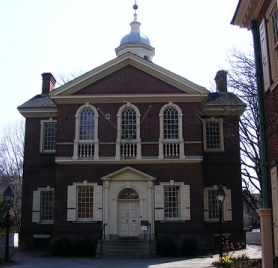
1774 – In response to the British Parliament’s enactment of the Coercive Acts in the American colonies, the first session of the Continental Congress convened at Carpenters’ Hall in Philadelphia. The Coercive Acts, called the “Intolerable Acts” by colonists, closed Boston to merchant shipping, established formal British military rule in Massachusetts, made British officials immune to criminal prosecution in America and required colonists to maintain living quarters British troops.
Fifty-six delegates from all of the colonies except Georgia drafted a declaration of rights and grievances and elected Virginian Peyton Randolph as the first president of Congress. Patrick Henry, George Washington, and John Adams were among the delegates.
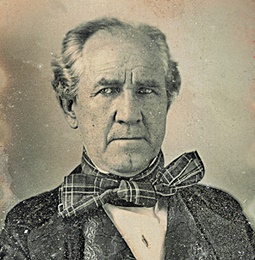
1836 – Sam Houston was elected as the first president of the Republic of Texas.
During the presidential election, the voters of Texas overwhelmingly indicated their desire for Texas to be annexed by the United States. Concerned about upsetting the balance between slave states and free states, U.S. President Andrew Jackson refused to push for the annexation of Texas, but in his last official act in office he granted Texas diplomatic recognition.
With the United States unwilling to annex Texas, Houston began courting British support; as part of this effort, he urged the end of the importation of slaves into Texas.
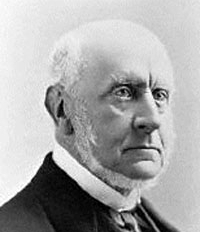
1863 – Charles Francis Adams, the United States Foreign Minister to Great Britain, sent an angry letter to the British government warning that war between the two nations could erupt if it allowed a pair of powerful ironclad ships, designed to help the Confederates break the Union naval blockade, to set sail.
Throughout the war, Confederate agents in England acquired ships from British shipyards that were later used in the Confederate navy. That seemed to be in violation of Britain’s own Neutrality Act of 1819. During the Civil War, the British argued that selling ships to the Confederates was not a violation of the law so long as they were not armed. So the Confederacy simply purchased the ships and then took them to another port before adding the armament.
On September 5, Adams concluded a letter to British Foreign Secretary Lord Russell with the words: “It would be superfluous of me to point out to your Lordship that this is war,” and with those words, a major foreign crisis was averted, and any glimmer of Confederate hope for British recognition vanished.
Sadly, Adams’ contribution to the success of the Union victory has been relegated to the dustbin of American history … but not here.
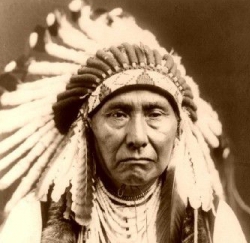
1877 – Sioux chief Crazy Horse was fatally bayoneted by a U.S. soldier after resisting confinement in a guardhouse at Fort Robinson, Nebraska. A year earlier, Crazy Horse was among the Sioux leaders who defeated George Custer’s Seventh Cavalry at the Battle of Little Bighorn in Montana Territory.
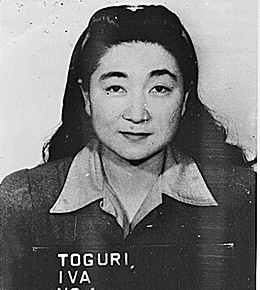
1945 – Iva Toguri D’Aquino, a Japanese American suspected of being wartime radio propagandist Tokyo Rose, was arrested in Yokohama.
She was released after a year in prison when neither the FBI nor General Douglas MacArthur’s staff found any evidence that she had aided the Japanese Axis forces. The American and Australian prisoners of war who wrote her scripts told her and the Allied headquarters that she had committed no wrongdoing.
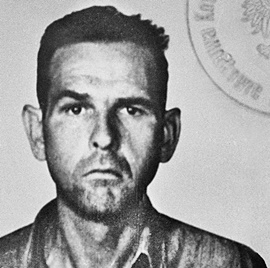
1946 – Amon Göth, former head of the Kraków-Płaszów concentration camp, was found guilty of imprisonment, torture, and extermination of individuals and groups of people, the first conviction of homicide at a war crimes court.
Göth’s actions at Płaszów became internationally known through his brilliant depiction by Ralph Fiennes in the film Schindler’s List. I still find it very difficult to believe Fiennes lost to Tommy Lee Jones (The Fugitve) for the Academy Award for Best Supporting Actor.
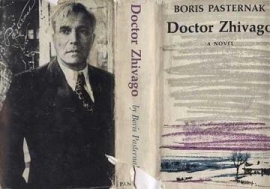
1958 – Boris Pasternak’s romantic novel, Dr. Zhivago was published in the United States. The book was banned in the Soviet Union, where officials argued that the book romanticized the pre-Revolution Russian upper class and degraded the peasants and workers who fought against the czarist regime.
Smuggled into the U.S. by admirers, the book was hailed as an instant classic and won the Nobel Prize for Literature. None of the acclaim for the book helped Pasternak. The Soviet government refused to allow him to accept the Nobel Prize, and he was banished from the Soviet Writers Union.
In 1965, Dr. Zhivago was made into a hit movie starring Omar Sharif as the title character. The film earned nine Academy Award nominations and won five.
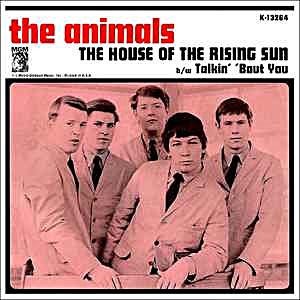
1964 –The Animals had their only #1 hit on Billboard’s Hot 100 when House Of The Rising Sun reached the top. The song was recorded in just one take on May 18.
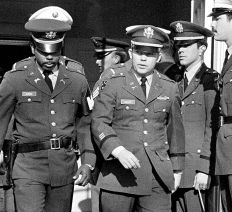
1969 – Lt. William Calley was charged with six specifications of premeditated murder in the death of 109 Vietnamese civilians at My Lai in March 1968. Calley had led his men in a massacre of Vietnamese civilians, including women and children, on March 16, 1968.
The incident was initially covered up, but eventually came to light a year later. An Army board of inquiry, headed by Lt. Gen. William Peers, investigated the massacre and produced a list of 30 persons who knew of the atrocity, but only 14, including Calley and his company commander, Captain Ernest Medina, were charged with crimes.
All eventually had their charges dismissed or were acquitted by courts-martial except Calley, who was found guilty of personally murdering 22 civilians and sentenced to life imprisonment. His sentence was reduced to 20 years by the Court of Military Appeals and further reduced later to 10 years by the Secretary of the Army. Calley was paroled by President Richard Nixon in 1974 after having served about a third of his 10-year sentence.
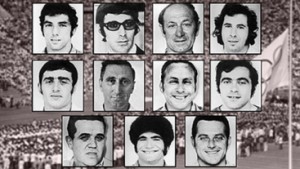
1972 – During the 1972 Summer Olympics at Munich, a group of Palestinian terrorists stormed the Olympic Village apartment of Israeli athletes, killing two and taking nine others hostage. In return for the release of the hostages, the terrorists, part of a group known as Black September, demanded that Israel release over 230 Arab prisoners being held in Israeli jails and two German terrorists.
In an ensuing shootout at the Munich airport the following day, the nine Israeli hostages were killed along with five terrorists and one West German policeman. Olympic competition was suspended for 24 hours to hold memorial services for the slain athletes.
In the aftermath of the murders, the Israeli government, headed by Golda Meir, hired a group of Mossad agents to track down and kill the Black September assassins. The 2005 Stephen Spielberg movie Munich was based on these events.
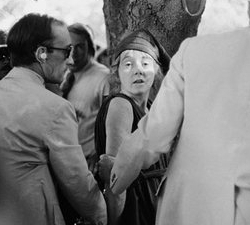
1975 – In Sacramento, California, an assassination attempt against President Gerald Ford was foiled when a Secret Service agent grabbed a semi-automatic .45-caliber pistol from Lynette “Squeaky” Fromme, a follower of cult leader Charles Manson. Fromme was pointing the loaded gun at the president when the Secret Service agent wrestled it from her.
It wasn’t a good month for Ford. Seventeen days later, he escaped injury in another assassination attempt when 45-year-old Sara Jane Moore fired a revolver at him.
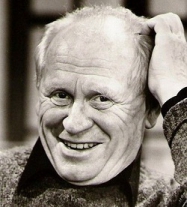
1988 – Actor Gert Frobe, best known for his roles as Auric Goldfinger in the James Bond film Goldfinger, Peachum in The Threepenny Opera, and as Baron Bomburst in Chitty Chitty Bang Bang, died of a heart attack at the age of 75.

1997 – Mother Teresa, a Roman Catholic nun and missionary who founded the Missionaries of Charity, died at the age of 87. At the time of her death, the Missionaries of Charity had over 4,000 sisters, and an associated brotherhood of 300 members, operating 610 missions in 123 countries. Winner of the Nobel Peace Prize in 1979, Mother Teresa was canonized a saint by the Vatican in 2016.
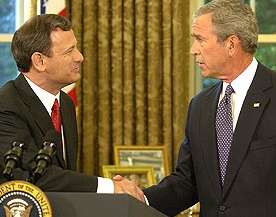
2005 – President George Bush announced the nomination of Judge John Roberts to succeed Chief Justice William H. Rehnquist who had died two days earlier.
Bush had previously nominated Roberts to the U.S. Supreme Court as an Associate Justice to fill a vacancy that would be created by the pending retirement of Justice Sandra Day O’Connor, but on this date, he withdrew Roberts’s nomination as O’Connor’s successor and announced his new nomination to the position of Chief Justice.
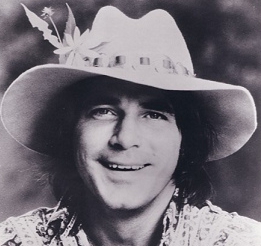
2012 – Singer/songwriter Joe South died of heart failure at the age of 72. His 1969 hit, Games People Play, won a Grammy Award for Song of The Year, and he had another hit with Walk A Mile In My Shoes in 1970.
As a songwriter, South wrote Down In The Boondocks and Hush, both hits for Billy Joe Royal (the latter covered by Deep Purple), and Rose Garden, a smash for Lynn Anderson,
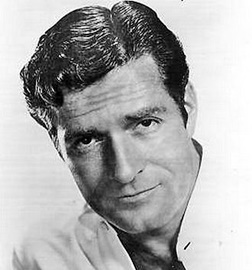
2016 – Actor Hugh O’Brian died in his sleep at the age of 91.
O’Brian was best known for his starring role in the ABC Western television series The Life and Legend of Wyatt Earp which ran from 1955–1961. His notable films included the adaptation of Agatha Christie’s Ten Little Indians, and a supporting role in John Wayne’s last film, The Shootist.
His character in the Wayne film was the last person ever killed by Wayne on screen. O’Brian, a good friend of Wayne’s, considered it a great honor.
Compiled by Ray Lemire ©2024 RayLemire.com / Streamingoldies.com All Rights Reserved.

I’m glad to learn of Charles Francis Adams. Certainly should not be forgotten.
I’ve told you how much I love “House of the Rising Sun” and how I listened to them over and over.
I have not seen “Munich”. I’ll have to.
Thank you, Jim. Mr. Adams should never be forgotten. He brought a mighty pen to the fray and very well have saved the union.
By all means, watch “Munich”
Good Morning Ray, You covered history through the years & around the world; your opening quote was appropriate. I don’t think I’d heard Jim McKay’s Munich coverage before but I’m glad tho saddened that I heard it today. As always, find something to smile about today & thank you 🙂 Lee
Thank you, Lee. Jim McKay, a man I already greatly admired, was outstanding during that horrible ordeal. Even today, 52 years later, those immortal words. “They’re all gone”, send chills down my spine.
I love history… thanks for the nuances
I always learn something even if I thought I knew the story
Thank you, Mary Helen. I’m glad I can help in some small way. 🙂